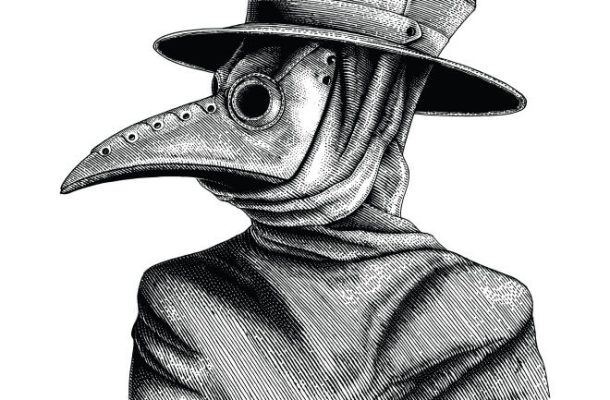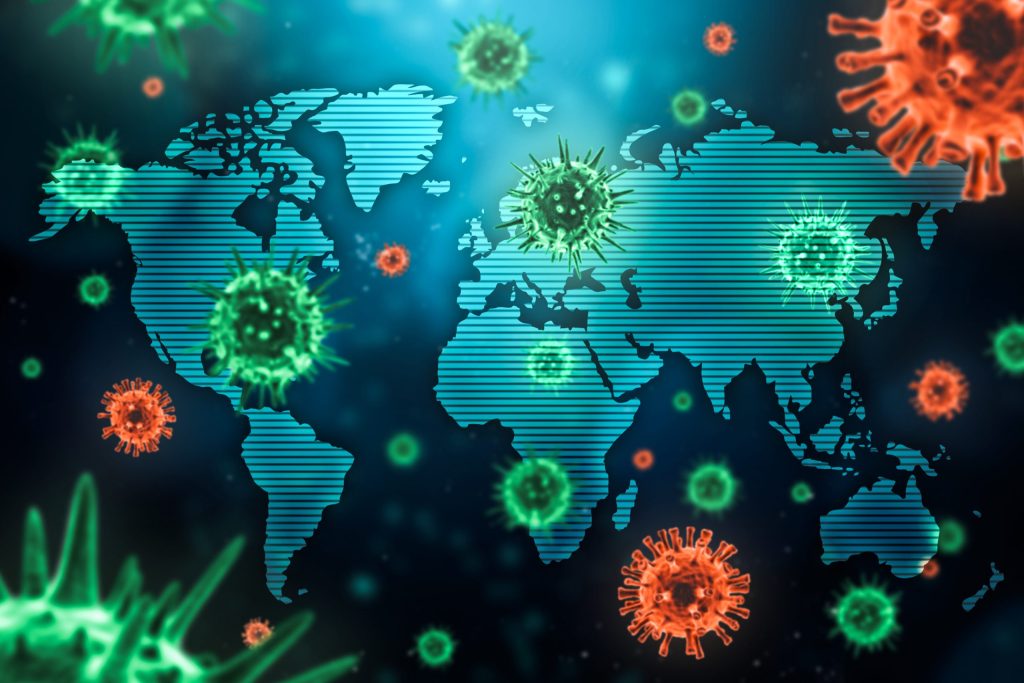Is Diarrhea a Symptom of COVID?
Learn more about Diarrhea.
Table of contents
When you are trying to figure out if diarrhea is a symptom of covid, you need to know a few things about the disease. The most important thing to realize is that there are two main types of diarrhea.
The first type is caused by a virus and is not dangerous. The other type is caused by a bacteria and can be extremely harmful to your health.
What is Diarrhea?
Diarrhea is one of the most common GI symptoms. It occurs for many different reasons. It may be the result of infection, a medication reaction, or food intolerance.
In general, chronic diarrhea is a sign of a digestive disorder. If you have a strong immune system, you’re less likely to develop diarrhoea. However, you may experience an acute bout of diarrhea if you have a weak immune system.

If you have diarrhea, you’re at risk for dehydration. The best way to rehydrate your body is to drink water or an oral rehydration solution. You should also replace lost fluids by eating or drinking salty crackers.
When you have COVID, you can expect to get a wide range of symptoms. Some of them may go away on their own. Others, including diarrhea, may worsen over a few days. If you experience any of these symptoms, you should contact your doctor.
Typically, you won’t be able to tell when you’re infected with COVID-19. The first few days of the disease are generally mild and do not cause any significant symptoms.
You may not feel short of breath, cough, or lose your appetite. You may later experience fever, loss of smell, and a sore throat.
Is Diarrhea a Symptom of Covid?
COVID is an infection that affects the respiratory, gastrointestinal, and urinary systems. It is spread through coughing, sneezing, or through contaminated surfaces.
Although the exact causes of COVID are still unclear, research suggests that it can disrupt the function of the digestive system.
This is believed to be caused by the virus binds to receptors in the gut, which can lead to inflammation of the small intestine.
Typically, diarrhea with COVID occurs early in the illness. It may last for days or even weeks. In addition, it can be accompanied by fever, abdominal pain, and cramps.

If you have diarrhoea, you should keep drinking. If you are not able to control the symptoms, seek medical attention. In addition, a doctor can help you decide whether you have an infection. Medications can be given to prevent or relieve diarrhea.
There are other causes of diarrhoea. It can be a result of food intolerance or a medication reaction. In some cases, it can be due to an unexpected infection.
If you are older and have a weakened immune system, you should contact your healthcare provider as soon as possible. In severe cases, diarrhoea can last for weeks or months.
Aside from diarrhoea, other symptoms of COVID-19 include sore throat, cough, and loss of appetite. While these are common in adults, they can also be present in children.
Youtube Video
Pandemic History of World And Diarrhea
In human history, pandemics have frequently occurred, affecting our society and the path of global events. Infectious diseases have decimated people and tested our ability to respond effectively for centuries, from the Black Death in the 14th century to the COVID-19 pandemic of today.
Let’s examine some of the most important pandemics in history to see how they affected our planet.
Plague of Justinian

One of the first pandemics to be documented in history, the Plague of Justinian in 541 CE is thought to have killed 25 million people in the Eastern Roman Empire. Emperor Justinian I, who contracted the illness but lived, received its name.
The Byzantine Empire suffered a great deal from the epidemic, which diminished its might in both the military and the economy and hastened its eventual fall.
Black Death

The most notorious epidemic in history was the Black Death, which ravaged Europe in the 14th century. According to estimates, it killed between 75 and 200 million people, or up to 60% of Europe’s population at the time.
The social and economic turmoil brought on by the Black Plague resulted in labor shortages, price inflation, and the dissolution of feudalism.
While people pondered why a just God would let such misery, it also had a tremendous impact on religious and cultural life.
Spanish Flu

Another terrible pandemic, the Spanish Flu of 1918–1919, is thought to have killed 50 million people globally.
Due to military movements following the conclusion of World War I, the pandemic spread quickly. The World Health Organization and contemporary epidemiology were both developed as a result of the Spanish Flu, which had a profound effect on public health.
COVID-19

The COVID-19 pandemic has paralyzed the planet as of right now. Millions of individuals have been infected by it, and thousands of people have died as a result. The pandemic has affected economies and society, leading to the closure of numerous firms and high rates of unemployment.
The COVID-19 pandemic has also brought attention to current disparities and revealed the weaknesses of healthcare systems all around the world.
Here is a table summarizing some of the key facts and figures for the pandemics discussed:
| Pandemic | Date | Estimated Death Toll | Impact |
| Plague of Justinian | 541 CE | 25 million | Contributed to the decline of the Byzantine Empire |
| Black Death | 1347-1351 | 75-200 million | Led to social and economic upheaval, weakened feudalism |
| Spanish Flu | 1918-1919 | 50 million | Contributed to the development of modern epidemiology and public health measures |
| COVID-19 | 2019-present | 2.5 million | Disrupted economies and societies, exposed vulnerabilities in healthcare systems |
The Next Pandemic Could Come Soon
The last few years have been a time of unprecedented human suffering. A pandemic has spread across the world, causing massive economic damage and killing millions. But it is not yet over.
Scientists have been studying a number of viruses that can jump from animals to humans. These pathogens include viruses such as Ebola, Zika, Japanese encephalitis, and Lassa fever.
But the next pandemic could come from a completely new respiratory viral pathogen.

According to the United States Centers for Disease Control, seventy-five percent of all new infectious diseases are caused by animal to human transmission of viruses.
The rate of animal-to-human transmission is increasing, which increases the risk of a new pandemic.
A new infectious disease can start anywhere. There is a higher probability of a pandemic in densely populated cities, where pathogens can spread in large numbers.
A new pandemic may also be started by accidental release of an animal-borne pathogen in humans, such as a coronavirus or a flavivirus.
In order to prepare for the next pandemic, we need to build a more robust global health care system. That means sustained funding.
We need to work together to ensure the distribution of vaccines, diagnostics, and treatments to developing nations. We must also improve regional solidarity.
If you want to know more about Covid in there please click… or check the Wikipedia Documents to here.
Final Thought About Diarrhea
In conclusion, COVID-19 diarrhea might last for days or weeks. If you cannot control the symptoms or have a weaker immune system, get medical attention. The COVID-19 pandemic also shows how pandemics can devastate our society and economy.
The Plague of Justinian, Black Death, Spanish Flu, and COVID-19 tested our ability to respond and showed the need for a stronger global health care infrastructure to avoid and contain future pandemics.
We must collaborate to prepare for the next pandemic and distribute vaccinations, diagnostics, and therapies globally.
You May Also Like
1- Is Sore Throat a Symptom of COVID-19?
2- Delicious and Healthy Plant-Based Meal Ideas
FAQ
You can treat diarrhea and speed recovery. Hydrate with water and electrolyte solutions. Rice, bananas, toast, and applesauce are bland, easy-to-digest foods. Loperamide (Imodium) and bismuth subsalicylate (Pepto-Bismol) are over-the-counter drugs that may help. Before starting any new medicine, consult your doctor, especially if you have a medical condition.
Diarrhea duration depends on reason. Viruses, germs, food poisoning, and drug side effects can induce acute diarrhea, which lasts a few days to a week. Persistent diarrhea, lasting more than four weeks, may indicate an underlying medical issue such IBS, IBD, or celiac disease. See a doctor for severe or chronic diarrhea.
Diarrhea without accompanying symptoms can occur for several reasons. Food intolerances, drug side effects, stress, anxiety, and inactivity are common reasons. IBS and IBD can induce chronic diarrhea. Talk to your doctor about regular or severe diarrhea.
Rotavirus, norovirus, Salmonella, and E. coli cause most diarrhea. Food, drink, and people can spread these illnesses. Food intolerances, drug side effects, stress, anxiety, and medical disorders can induce diarrhea. Diarrhea-causing illnesses spread in impoverished countries due to insufficient sanitation and hygiene.





